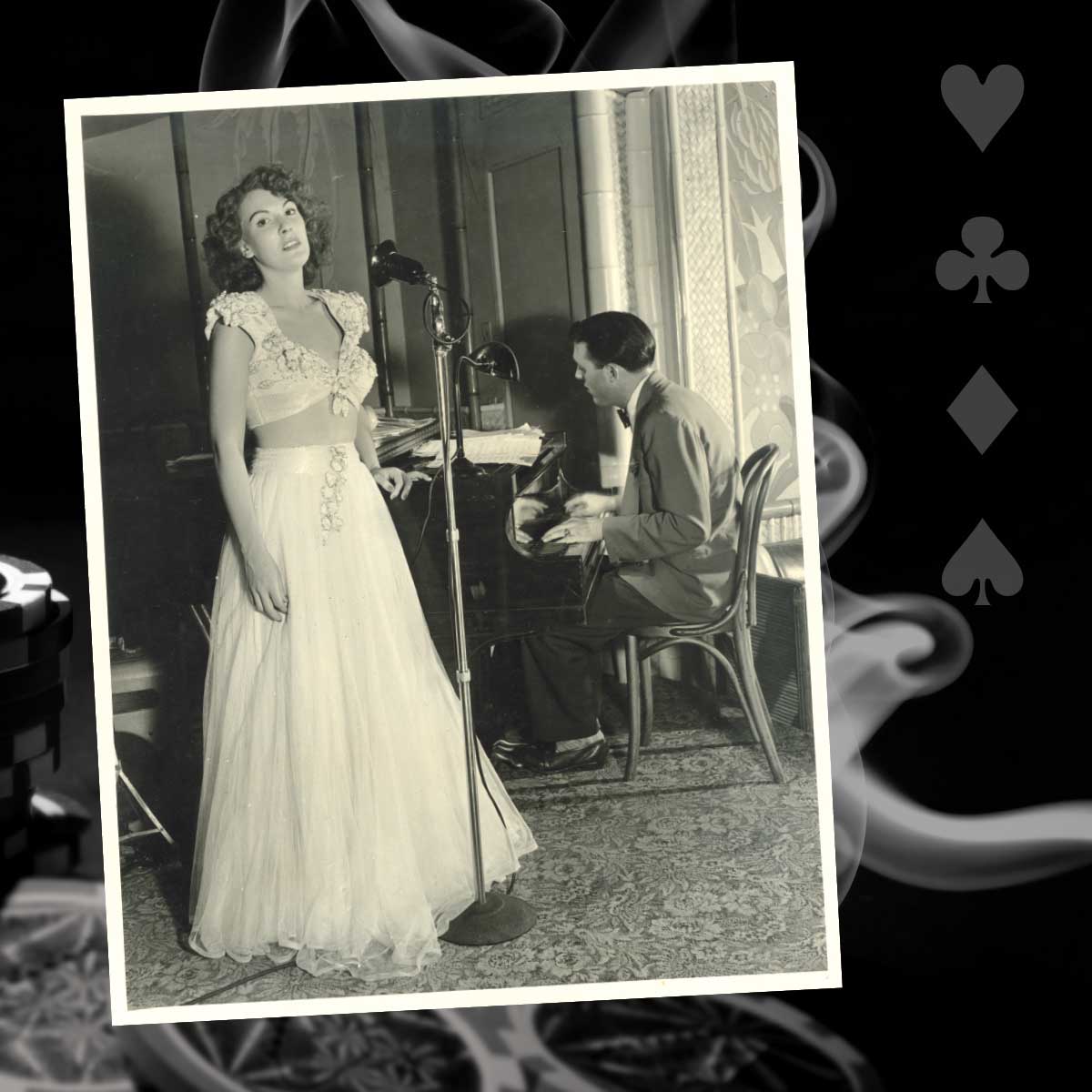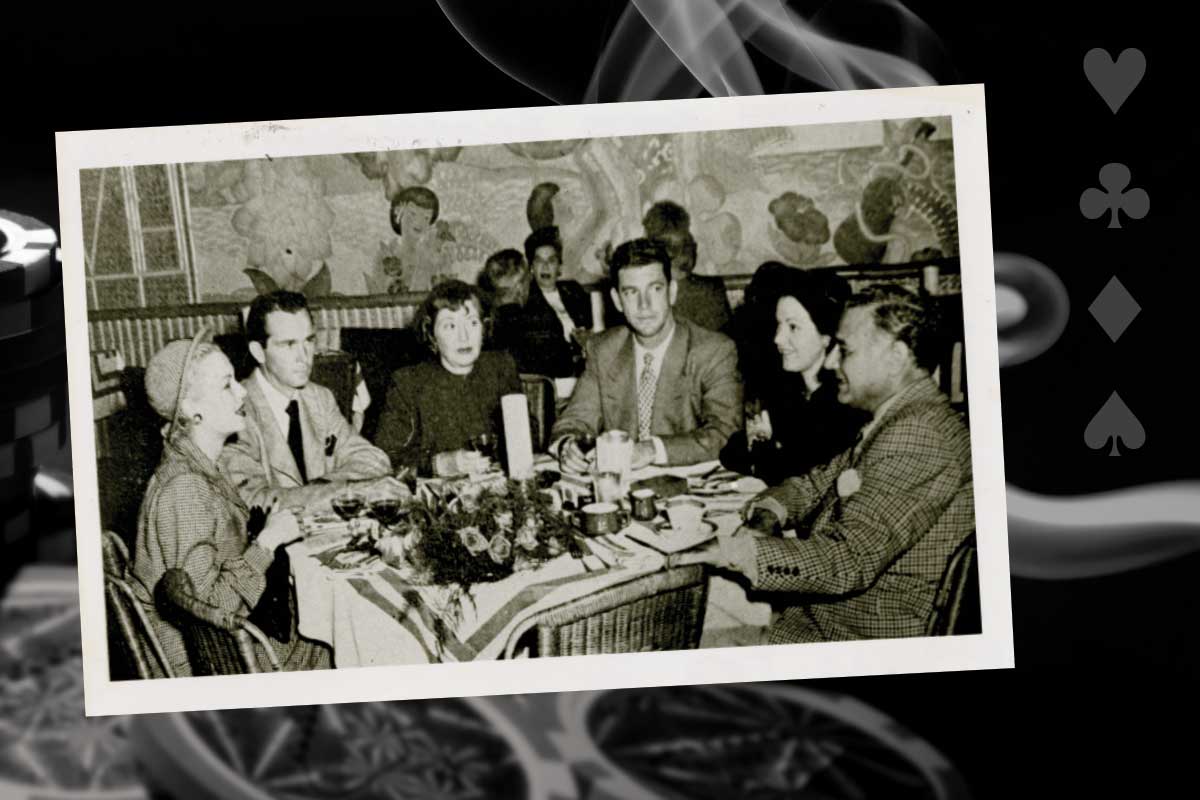Rosario and Sam Maceo left one island for another when the immigrants arrived in Galveston in 1901 from their home, Sicily, Italy.
In Texas, the brothers became barbers, and when Prohibition went into effect in 1920, they rewarded loyal customers with bottles of wine hidden in bread loaves.
Around this time, Dutch Voight, a member of an organized crime syndicate called the Beach Gang, approached the Maceos with an opportunity to make money by hiding 1,500 cases of liquor from the authorities. With the profit from one case worth as much as 150 haircuts, the brothers accepted.
They were now part of what became known as “the free state of Galveston,” and the Maceos went on to climb the ranks of the underground, running an infamous syndicate of illegal businesses. Galveston earned this moniker during the 1920s because of its lax attitudes toward illegal activities such as gambling, alcohol and prostitution, which fueled its economy well into the 1950s.
It’s easy to imagine the free state as a Hollywood movie: gangsters running the barrier island, vice flourishing, gentlemen patronizing glitzy supper clubs, and politicians and law enforcement colluding with the Maceo brothers and other crime bosses of the era. But that’s not quite how it worked—not in Texas. The free state of Galveston illustrated Texans’ unique worldview.
“I hate to use the term ‘gangsters,’ ” says Jami Durham, a historian with the Galveston Historical Foundation. “It’s not like they were in zoot suits running the streets with guns. They were accepted as respected businessmen who happened to run businesses that were very entertaining.”
Unlike other infamous crime bosses of their era, the Maceos shied away from violence because it was bad for business.
According to Durham, the Maceos also had little tolerance for men who gambled away their rent money. “If a lady came to them and said, ‘I can’t pay my rent because my husband gambled it all away at your casino,’ they would pay her the month’s rent, then pay her husband a call,” Durham says.
The Maceos helped not only their customers but also the greater community. They donated to charity groups and invested in local projects.
“It’s an odd juxtaposition: They were running illegal gambling parlors, but they were contributing to the community,” Durham says. “People loved them and still love them.”
According to Kathleen Maca, a Galveston historian and author, the Maceos and the vice economy of the free state kept Galveston afloat during the 1930s.
“While the rest of the U.S. was suffering from the Great Depression, the city was doing OK,” Maca says. “The free state really saved the island in that aspect. No banks failed.”
But it also didn’t hurt that much of Texas’ commerce still flowed through the city.
“I would counter that it was the port that allowed Galveston to maintain a sense of normalcy,” Durham says. With goods regularly arriving by ship and then being loaded onto rail cars and moved inland, work remained steady, and that helped keep the economy afloat.

Scene from the Balinese Room in 1948.
Courtesy Rosenberg Library | Galveston. Background image: Lukas Gojda | Stock.adobe.com
During its heyday, an elaborate warning system kept the authorities from raiding the most popular local casino, the Balinese Room, which sat atop a pier that jutted into the Gulf of Mexico. The Maceo brothers had opened the casino in 1942.
After numerous failed raids, the Texas Rangers paid off several employees to let them enter the casino unannounced on June 6, 1957. The era of open vice had ended.
Galvestonians still admire the Maceos’ steadfast ambitions.
“It takes a different type of constitution to live here knowing that a storm could take everything you have in a second,” Durham says.
“But the pleasure of living here, smelling the salt air, hearing the waves crash against the seawall and eating fresh seafood—all of that outweighs the threat of the storm,” she says. “Every socioeconomic group, every race, we’re all bound together by a love of this crazy, quirky little sandbar.”
Correction: March 1, 2024
This story was updated to indicate that the pier with the Balinese Room jutted into the Gulf of Mexico.



